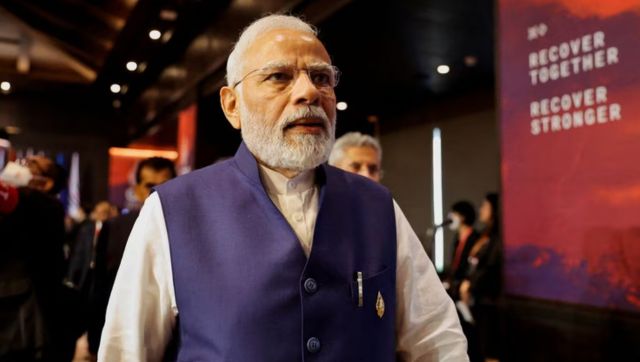Back when the world was dealing with the Global Financial Crisis, the annual G20 summit was a big deal. It was such a big deal that it actually happened every six months. But once the crisis passed, the G20’s mission disappeared. By 2011 it was already just another themed summit in the crowded global summit calendar. Soon after, G20s became more prominent for the side-meetings arranged by leaders who happened to be in town than for the summits themselves.
India had to wait 18 years to host a G20 summit, and India’s is the biggest summit yet, with a full year of related activities and a major national publicity campaign. India has no fewer than six policy priority areas for its G20 presidency, and it’s unlikely that anyone not involved could name them. The biggest issue facing the G20 this year is the inclusion of the African Union alongside the European Union. The second biggest issue is Russia.
India’s G20 presidency coincides exactly with its rise to global prominence. Whereas 2022 was a year of introspection for India, celebrating 75 years of independence, 2023 is India’s coming out party.
For international observers, India’s G20 presidency is reminiscent of another coming out: The 2008 Beijing Olympics. India’s GDP per capita today is almost exactly equal to what China’s was in 2008, and its growth rate, if not quite as spectacular, is among the highest in the world. India may be much poorer than China, but it is less than two decades behind China on its growth curve, and catching up.
New Delhi, too, is on the cusp of development in the same way that Beijing was in 2008. Beijing had seven metro lines in 2008, but would build thirteen more lines in the next decade. New Delhi has nine lines today, with massive expansion plans in motion. Across India, Metro projects are in motion in some two dozen cities. Just as most of China’s impressive infrastructure was built in the 2010s, India’s is being built in the 2020s.
Impact Shorts
More ShortsIndia famously passed the United Kingdom to become the world’s fifth largest economy in 2022. Well before the end of this decade, it will almost certainly surpass Germany and Japan to become the world’s third largest—and the free world’s second. So it’s no wonder that the world is coming to India. Everyone and every business wants to win a piece of that growth.
And as it grows, India will necessarily play a more prominent part in global economic governance. Right now, the free world has two major economic governance regimes: Those centered on the United States and the European Union. Japan has a large economy, but one that is metaphorically insular and relatively closed-off. It has never fully lived up to its potential as a third leg providing stability to global economic governance.
As India overtakes Japan to become the third major economic zone of the free world, it does so with a much more open, globally-engaged economy. That makes India a prime candidate for G7 membership. India has already attended the G7 as an invited guest for three years running, and will almost certainly be invited to next year’s summit in Italy. With India already looming much larger in global affairs than either Italy or Canada, the G7 must ultimately incorporate India to remain relevant to global economic governance.
The G20 is a talking shop; the G7 is where decisions are made. Global leaders may or may not show up to the G20, depending on their schedules and who else is coming. Global leaders almost always come in person for the G7. With India soon to be the second largest economy in the free world—and, perhaps more importantly, the second largest investment destination after the United States—it will become indispensable to have India at the top table. Politics may slow down or speed up the moment, but either way, India’s moment is imminent.
India’s is probably the last G20 summit that will receive major press attention and top leaders’ attendance. In future years, the G20 will likely become the preserve of foreign and finance ministers, deputies and vice presidents. Because even today, the world’s leaders aren’t convening in New Delhi for the G20. They are convening in New Delhi for India. It’s India’s party, and the world has come to celebrate.
The author is an associate professor at the University of Sydney and the executive director of the Indian Century Roundtable. Views expressed in the above piece are personal and solely that of the author. They do not necessarily reflect Firstpost_’s views._ Read all the Latest News , Trending News , Cricket News , Bollywood News , India News and Entertainment News here. Follow us on Facebook , Twitter and Instagram .
)